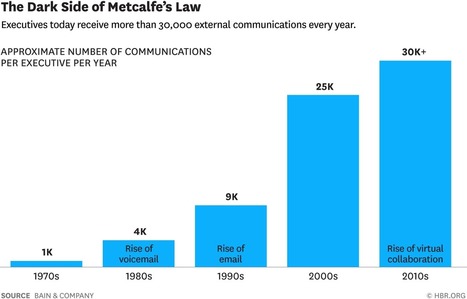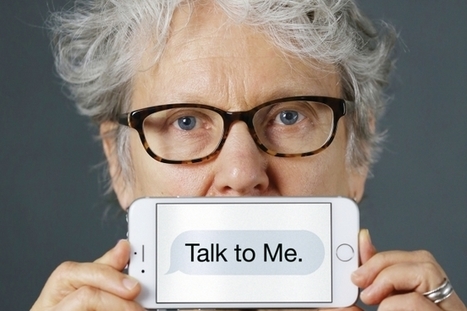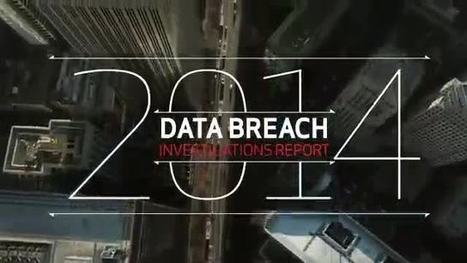Post your PSA Script HERE
Research and publish the best content.
Get Started for FREE
Sign up with Facebook Sign up with X
I don't have a Facebook or a X account
Already have an account: Login
Class Resources for Penn State Berks CAS 383 Course.
Curated by
John Shank
 Your new post is loading... Your new post is loading...
 Your new post is loading... Your new post is loading...
corina piller's comment,
November 11, 2014 10:47 PM
copyright has been apart of our history since the nineteenth-century that intertwined the idea of an evolving Western civilization. Law is something that constitutes culture and it cannot be divorced from law. Cultural scholars are focusing on copyright as a field of research expanding into the discipline of law. The article stated copyright is the hallmark of civilization and reflected the role of print culture. The birth of copyright was influenced by romanticism and enlightenment philosophy in the late eighteenth and nineteeth centuries. Contemporary debates about copyright and piracy rely on inherited values and structures of power. Fredriksson, Martin. "Copyright Culture And Pirate Politics." Cultural Studies 28.5/6 (2014): 1022-1047. Academic Search Complete. Web. 11 Nov. 2014.

Rachel P's comment,
November 11, 2014 11:28 AM
From our past and toward our future, copyright has always been a vague mystery. According to the article that I found, that mashups are just a representation of our lack of concern for copyright laws. Especially with youtube, it is such a social thing that we only do to get attention that we often forget that we are breaking rules. The article concludes with how there is little hope for the future, which I guess is understandable but super depressing. He, Wu, and Shenghua Zha. "Insights Into The Adoption Of Social Media Mashups." Internet Research 24.2 (2014): 160-180. Academic Search Complete. Web. 11 Nov. 2014.
Emily Rumpf's comment,
November 11, 2014 11:28 AM
The article that I read talks about the issues with the copyright law that mashups, and music sampling create. It talks about what is considered "fair use" and how much of a clip is too much. This article also talks about the history of mashups, and the repeated clash of this art form with the copyright law. New technology is emerging to make mashups even easier to produce, allowing creators to take many clips out of context and give them a different meaning. I believe that the copyright law and "fair use" act need to be more clear cut if we are ever to solve this constant conflict between mashups and copyright infringement. de Jesus, Joseph Georg Michael D. "Of Girl Talk And Dangerous Mice: Exploring The Clash Between Music Sampling, Mashups, And Copyright Law In The Digital Age." Ateneo Law Journal 57.4 (2013): 1175-1201. Academic Search Complete. Web. 11 Nov. 2014.
Erik Lewis's comment,
November 11, 2014 12:05 PM
I found an article on the changing nature of copyright law. It outlined how ABC and a computer program have been cited for copyright infringement, as an example. The article makes it seem like the law's ideas of copyright may be shifting in the correct direction, and as someone who is very concerned with copyright law, that feels like a step in the right direction.
Samuelson, Pamela. "Updates On The Intellectual Property Front." Communications Of The ACM 57.11 (2014): 28-30. Academic Search Complete. Web. 11 Nov. 2014.

John Shank's comment,
October 21, 2014 2:42 PM
2. Keep only a few credit cards and check yearly your credit record.
|
Emily Kooistra's comment,
November 18, 2014 1:37 PM
The article I read related to intellectual property and the classroom. Many teachers create their own curriculum for classes, and the question arose, 'Who owns that curriculum?' Should teachers be creating custom courses, materials, etc... that can be sold to other teachers and districts. I think that adds a whole new element to teaching. This could potentially lead to all kids of certain grades and levels to be taking the same standardized course. But if everyone is learning the same thing the same way, is that actually good?
Johnson, Doug. "Who Owns That Course?." Educational Leadership 72.2 (2014): 83-84. Academic Search Complete. Web. 18 Nov. 2014.
Emily Kooistra's comment,
November 18, 2014 1:37 PM
The article I read related to intellectual property and the classroom. Many teachers create their own curriculum for classes, and the question arose, 'Who owns that curriculum?' Should teachers be creating custom courses, materials, etc... that can be sold to other teachers and districts. I think that adds a whole new element to teaching. This could potentially lead to all kids of certain grades and levels to be taking the same standardized course. But if everyone is learning the same thing the same way, is that actually good?
Johnson, Doug. "Who Owns That Course?." Educational Leadership 72.2 (2014): 83-84. Academic Search Complete. Web. 18 Nov. 2014. 
Rachel P's comment,
November 18, 2014 1:39 PM
In this insightful article that I found on the internet, I learned about copyright. That's right, copyright. Now what exactly did I learn? More about how we never use it. This article talked about how we justify ourselves for never really caring about it and what not. Especially brought on by the new age of digital natives, there seems to never be a solution. However we can hope for the future to one day resolve these issues. Edwards, Lee, et al. "Discourse, Justification And Critique: Towards A Legitimate Digital Copyright Regime?." International Journal Of Cultural Policy 21.1 (2015): 60-77. Academic Search Complete. Web. 18 Nov. 2014.
Elisa Guatieri's comment,
November 4, 2014 1:14 PM
The article I chose discusses how a number of tracks have been flagged and removed from SoundCloud. SounCloud is know as the Youtube of audio. It was once known as a place for emerging producers to upload and share music for free. Famous Dj Kaskade had left the platform after 32 of his files were flagged as potential copyright violators and taken down. Kaskade later posted a letter on the website behhing lawmakers and other websites that share files to "free the music." In the meantime, DJs are having a hard time finding a home for covers, mashups, and remixes.
BUERGER, MEGAN. "Soundcloud Gets Heat From Illegal Licenses." Billboard 126.24 (2014): 13. Academic Search Complete. Web. 4 Nov. 2014.
Nyalima Esther Gaojia's comment,
November 4, 2014 1:22 PM
The atrucle that I chose to write about is called " Record
Title: The Copyright Wars: Three Centuries of Trans-Atlantic Battle." by Michael O Eshleman talks about the reason why copyright exist and that is the benefit Anglo-American traditions and not the author. Copyright exist for a very long time the authors life pulse 75 years. The article also goes on to explain what goes on with the copyright law when it goes wrong. Eshleman, Michael O. The Copyright Wars: Three Centuries of Trans-Atlantic Battle. N.p.: n.p., n.d. Print. 
Rachel P's comment,
November 4, 2014 1:33 PM
My article that I read was about internet addiction as a cause to why we do not properly copyright. I found it interesting that the author talked about how we never really think about our actions because it is something so second nature to us now. The internet seems bad but like why do we keep using it? Navarro, Jordana N., et al. "Addicted To Pillaging In Cyberspace: Investigating The Role Of Internet Addiction In Digital Piracy." Computers In Human Behavior 37.(2014): 101-106. Academic Search Complete. Web. 4 Nov. 2014.
|




























https://www.google.com/search?q=facebook+has+access+to+your+information&biw=1164&bih=535&source=lnms&tbm=isch&sa=X&ei=m5eTVPG6DKjHsQTy4IHADg&ved=0CAcQ_AUoAg#facrc=_&imgdii=_&imgrc=KOvuRV5Rz9ZWKM%253A%3BF_pPWucYJpOYKM%3Bhttp%253A%252F%252Fcdn1.tnwcdn.com%252Ffiles%252F2011%252F01%252Fcurrent_address_mobile_phone1.png%3Bhttp%253A%252F%252Fthenextweb.com%252Ffacebook%252F2011%252F01%252F16%252Ffacebook-apps-can-now-obtain-your-phone-number-and-home-address%252F%3B550%3B306
https://www.google.com/search?q=facebook+has+access+to+your+information&biw=1164&bih=535&source=lnms&tbm=isch&sa=X&ei=m5eTVPG6DKjHsQTy4IHADg&ved=0CAcQ_AUoAg#facrc=_&imgdii=_&imgrc=oayhM3BrbPwdCM%253A%3BmaCNEOgTzoYzJM%3Bhttp%253A%252F%252Fcdn.makeuseof.com%252Fwp-content%252Fuploads%252F2012%252F04%252FFacebook-Enter-New-Email-Address.png%253F3cb89b%3Bhttp%253A%252F%252Fwww.makeuseof.com%252Ftag%252Frecover-facebook-account-longer-log%252F%3B563%3B230
https://www.google.com/search?q=facebook+has+access+to+your+information&biw=1164&bih=535&source=lnms&tbm=isch&sa=X&ei=m5eTVPG6DKjHsQTy4IHADg&ved=0CAcQ_AUoAg#tbm=isch&q=facebook+messenger+hacks+your+phone&facrc=_&imgdii=_&imgrc=Uz-4Mam2kUfS_M%253A%3BhkdTp18N8al6RM%3Bhttp%253A%252F%252Fyazmar.com%252Fwp-content%252Fuploads%252Foioii.jpg%3Bhttp%253A%252F%252Fwww.yazmar.com%252F2014%252F07%252F31%252Ffacebook-messenger-hacks-into-your-phone%252F%3B640%3B360
https://www.google.com/search?q=facebook+has+access+to+your+information&biw=1164&bih=535&source=lnms&tbm=isch&sa=X&ei=m5eTVPG6DKjHsQTy4IHADg&ved=0CAcQ_AUoAg#tbm=isch&q=dont+post+personal+information+on+facebook&facrc=_&imgdii=_&imgrc=FufiYn2vTebFzM%253A%3BPBpWnMIubGzFxM%3Bhttps%253A%252F%252Ffishofgold.files.wordpress.com%252F2014%252F06%252Ffacebook-not-your-diary.jpg%253Fw%253D800%3Bhttp%253A%252F%252Ffishofgold.net%252F2014%252F06%252F27%252Fdont-like-social-media%252F%3B420%3B294
Cashmore, Pete. "Privacy Is Dead for Flickr." CNN. Cable News Network, 28 Oct. 2009. Web. 10 Dec. 2014. <http://www.cnn.com/2009/OPINION/10/28/cashmore.online.privacy/index.html?iref=24hours>.
"Privacy Settings and Safety Tips for Using Flickr." Report a Cyberstalker Support for Victims of a Cyberstalker. N.p., 24 Sept. 2012. Web. 10 Dec. 2014. <http://www.fightcyberstalking.org/privacy-settings-flickr/>.
Rehm, Lars. "Flickr Launches Image Marketplace Initiative." Connect. Connect, 29 July 2014. Web. 10 Dec. 2014. <http://connect.dpreview.com/post/2892483123/flickr-launches-image-marketplace-initiative>.
https://www.flickr.com/guidelines.gne
Animoto references:
http://www.fightcyberstalking.org/privacy-settings-flickr/
http://connect.dpreview.com/post/2892483123/flickr-launches-image-marketplace-initiative
http://www.trecebits.com/wp-content/uploads/2009/07/flickr-insp1-619x346.jpg
https://www.flickr.com/photos/make_a_wish_xoxo/
https://www.flickr.com/photos/elizabethgadd/15907511716/
Animoto/Script
Associated Press. “Virgin Mobile Sued over Flickr Image Used in Ad.” World Business on NBC News. N.p., 20 Sept. 2007. Web. 19 Dec. 2014.
Klaassen, Abbey. “User-Created Ads Create Rights Conundrum: EBSCOhost.” Advertising Age 80.38 (2009): 3–32. Print.
Villasenor, John. “Copyright Infringement And Photo Sharing: A New Lawsuit Tests The Limits Of Fair Use.” N.p., 22 June 2013. Web. 19 Dec. 2014.
Images:
https://www.google.com/url?sa=i&rct=j&q=&esrc=s&source=images&cd=&cad=rja&uact=8&ved=0CAcQjRw&url=http%3A%2F%2Fpixgood.com%2Fflickr-logo-black-png.html&ei=_KaTVLSUFJHGsQSu4YH4CQ&bvm=bv.82001339,d.cWc&psig=AFQjCNE3-GS3bAbaaVhxkf9OqpYnZSjmjA&ust=1419049101882684
https://www.google.com/url?sa=i&rct=j&q=&esrc=s&source=images&cd=&cad=rja&uact=8&ved=0CAcQjRw&url=http%3A%2F%2Ftechau.com.au%2Fwindows-8-will-implement-family-safety-for-worrying-parents%2F&ei=M6eTVN8R8ZmxBMebgrgG&bvm=bv.82001339,d.cWc&psig=AFQjCNHjicG5R_0j6DIhDpDx_FPPDVlp0w&ust=1419049136711868
https://www.google.com/search?sa=G&tbm=isch&tbs=simg:CAQSaRpnCxCo1NgEGgYIAwgJCAoMCxCwjKcIGjwKOggCEhSKDIUM_1BTsCLgWlhXwC7wWgAiTFRogdku_1mfA0VRYTKZ1JKY-S9gEybksPryPkrds9XFabBcAMCxCOrv4IGgoKCAgBEgRFnjL1DA&ei=qqeTVM_DF6TesASqmIK4BA&ved=0CBsQwg4oAA
https://www.google.com/search?sa=G&q=digital+citizenship&tbm=isch&tbs=simg:CAQSZRpjCxCo1NgEGgIIBAwLELCMpwgaPAo6CAISFLYKtArjE70KyBPBE-0SliDDH5kgGiD0A0c3Av5M9vLhvOCFp1YEQlhQyP9a9-svEgVrIaideAwLEI6u_1ggaCgoICAESBOsDGAUM&ei=yaeTVK7IEqz7sATTkYDICA&ved=0CBsQwg4oAA
https://lh4.ggpht.com/CKkXnpU5nNxHnS53h43VoDciuTLApiQ2XLW_Zd_dBEX2WCvpLrb-dKqGK6FGduA_Jkvj=s136
https://www.google.com/url?sa=i&rct=j&q=&esrc=s&source=images&cd=&cad=rja&uact=8&ved=0CAcQjRw&url=http%3A%2F%2Ftownsville2070.com%2Fcreative-commons%2F&ei=A6iTVODVJceKsQSx7oGQBQ&bvm=bv.82001339,d.cWc&psig=AFQjCNEcggP7aJLnGeHT_lErNpxjQCILzQ&ust=1419049344042824
https://www.google.com/url?sa=i&rct=j&q=&esrc=s&source=images&cd=&cad=rja&uact=8&ved=0CAcQjRw&url=http%3A%2F%2Fwww.mcneelyfs.com%2Ffine-print&ei=H6qTVOuTL-61sASR7oDIDg&bvm=bv.82001339,d.cWc&psig=AFQjCNH-f-HNd10PKsQWu-XVHp1Hkx5abA&ust=1419049878520390
https://www.google.com/url?sa=i&rct=j&q=&esrc=s&source=images&cd=&cad=rja&uact=8&ved=0CAcQjRw&url=http%3A%2F%2Fwww.police.belleville.on.ca%2Fbeawarec204.php&ei=d6qTVOvYBsLmsASUiIHgDw&bvm=bv.82001339,d.cWc&psig=AFQjCNGbROgTDmIlGiILHj8dTzgwd0ByjQ&ust=1419049970290343